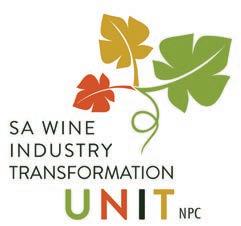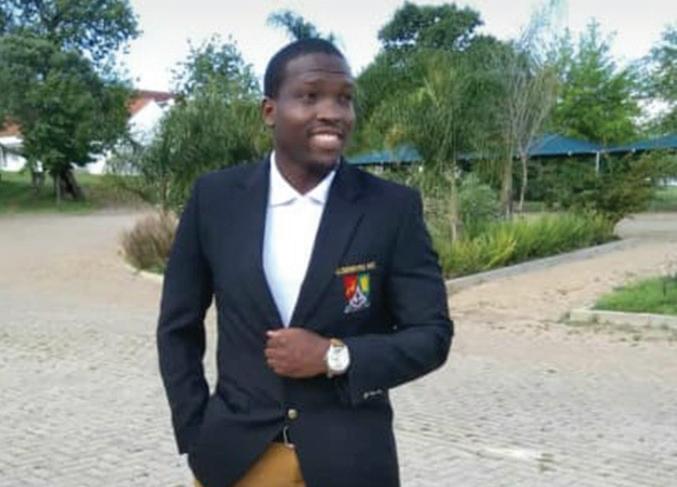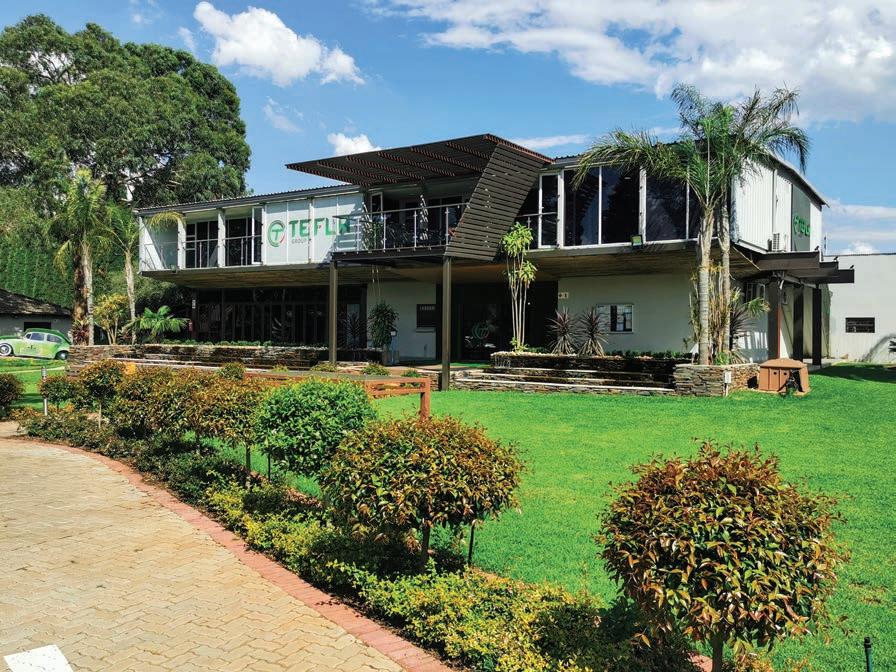
12 minute read
Food gardens and food security
FEEDING GARDENS
Gareth Griffi ths talks to community volunteers about growing sustainable food feeding schemes
Before lockdown, 80 per cent of the Cape’s Ocean View community were already living under the poverty breadline, says community volunteer Rashid Davids. “The Noorul Islam Mosque started a weekly feeding scheme in 2014, but at the beginning of lockdown earlier this year, we saw the need for largerscale programmes. great countrywide increase in demand 5 600 tonnes of food since March this year, compared with the
Andy du Plessis, MD of FoodForward SA, con rms: “In the past seven months we have almost doubled our operations – we
The feedourvalley.org “Kitchen Godesses”.
“We encouraged community members to set up satellite soup kitchens. There are now 72 food kitchens across Ocean View.”
The working model established by the Ocean View team in distributing to satellite food kitchens has worked so well that it is being replicated by the City of Cape Town in other communities including Delft, Lavender Hill, Atlantis and Masiphumelele.
Sally Berg, the founder of www.feedourvalley.org, which creates and supports feeding schemes in Cape Town’s southernmost townships via a network of “Kitchen Goddesses”, says the answer to our food security issues is empowerment. “The charity mode is the old colonial way – it disempowers people and keeps them in victim mode. First prize is if you can start building programme or scheme sustainability and then empower the community with skills training, education and provide resources to create community hubs so that people can fl ourish and begin building microbusinesses and creating employment.”


FOOD FORWARD SA “We have now set up 12 mobile rural depots that get food to more than 120 bene ciary organisations reaching over 62 000 vulnerable people in underserved O ver the past few months, there has been a signi cant rise in community feeding schemes. Organisations such as FoodForward SA, which acts as a food bank, has seen a are now in all nine provinces, previously we were only in six. “We’ve also moved to larger premises in Port Elizabeth and Durban to accommodate the increased operational demand. “FoodForward SA now supports a total of 1 005 organisations, reaching 475 000 vulnerable people, and we continue to receive applications to serve even more,” says du Plessis. for their surplus food offerings. The organisation has distributed FOODFORWARD SA’s MEASURABLE IMPACT 5 115 tonnes distributed during Andy the 2019 nancial year. du Plessis
rural communities.

MASI CREATIVE HUB
When South Africa’s national lockdown began, the Masi Creative Hub was already running a feeding scheme for young children up to grade 5 in the Masiphumelele township. Founded by Yandiswa Mazwana, the hub has seven feeding stations spread across Masiphumelele and provides about 1 100 meals per day.
Masi Creative Hub provides meals across Masiphumelele township.

THE SA WINE INDUSTRY’S TRANSFORMATION JOURNEY

Transformation in the wine industry is being driven by the SA Wine Industry Transformation Unit which, among other objectives, aims to develop partnerships to maximise its efforts
A black-owned brands information session was held in September 2019 at Diemersfontei/Thokozani Wine Estate, Wellington.
The South African wine industry has grown into a significant, internationallyrecognised global player. A 2015 study concluded that the industry contributed R36-billion to South Africa’s gross domestic product (GDP), employing more than 300 000 people in its value chain.
Historically, the country’s wine industry has been almost exclusively the preserve of white stakeholders. Despite playing a significant role in ensuring the industry operates optimally, people of colour were excluded from meaningful participation in the industry.
It is for this reason that the SA Wine Industry Transformation Unit (SAWITU) was established.
The organisation’s key goal is to drive transformation in the wine value chain focusing on the following objectives: • to generate and promote equitable access and participation within the wine value chain • to strengthen and accelerate the development of the operational and financial capacity of wine farms and businesses owned by black people throughout the value chain • to increase the representation of black people, with a specific focus on black women, at management level in wine cellars, wine businesses and industry organisations through industry programmes for human development in and for the wine industry • to promote ethical practices within its community of stakeholders (including workers) through the implementation of well-integrated ethical trade programmes throughout the wine industry • to become proactively involved in the upliftment and empowerment of workers and communities comprising black people within the wine industry • to promote socially responsible consumption of the produce of the vine • to assist in the facilitation of an all-inclusive social compact for the wine industry.
STRATEGIC PILLARS
SAWITU identified its strategic pillars as ownership, enterprise development, skills development, management control and social development.
A key objective of SAWITU’s strategic vision is to develop partnerships and collaboration between various stakeholders.
The goal is to identify areas of partnership where different role players in the sector can collaborate to maximise support and leverage limited funding. SAWITU has partnered with well-matched stakeholders that provide the same drive and support to black-owned enterprises, black-owned farms and farmworker programmes.
By way of enterprise development, SAWITU has made great strides for black-owned entities including financial grant assistance, opportunities for market access, marketing and promotional activity support and mentorship support programmes. To maximise black participation in the sector, SAWITU has compiled and shared a database of Level 1 and 2 B-BBEE enterprises to ensure preferential procurement.
Furthermore, targeted initiatives have contributed to improving support by offering a more focused method that will ensure greater impact for both local and international markets. In 2019, following engagement with its stakeholders, SAWITU committed to working in a more focused manner, ensuring maximum impact for its efforts.
SAWITU has identified the key challenges facing these farms and is running a technical support programme and mentorship support programme in parallel with financial support.
Most of the black-owned farms are in the early stages of development, so it is important that significant steps are taken to ensure sustainable growth and that empowerment with business mentorship is achieved, especially with the worker trust schemes.
A specific focus on skills development, learnership training, employment equity targets, management initiatives and ownership support initiatives regarding land reform and the acquisition of land by black businesses evokes a new dynamic in the transformation journey.
Acutely aware of the plight of the farmworkers when the coronavirus pandemic broke, SAWITU immediately mobilised its resources to provide food hampers and other support to thousands of farmworkers in the Western Cape, many of whom were without employment or remuneration during the hard lockdown.
Aside from this, SAWITU has been involved in various philanthropic activities, since its inception and continues to make great strides in its transformation work.
For more information:
info@witu.co.za/www.witu.co.za


Two of the many sector graduates who benefitted from bursary funding by the Vinpro Foundation.
VINPRO FOUNDATION TACKLES INEQUALITY
The Vinpro Foundation seeks to address the inequalities in the farming communities, promote human development and provide support in the wine industry
The Vinpro Foundation aims to support and grow farming communities, focusing particularly on the youth, to elevate families out of the ever-deepening cycle of poverty. Its efforts are concentrated on the Western and Northern Cape and surrounding areas with a footprint in 11 designated areas of operation – Stellenbosch, Paarl, Wellington, Robertson, Breedekloof, Overberg, Swartland, Worcester, Vredendal, Slanghoek Valley, Ebenaeser and Pappendorp.
Its programmes, offered to farmworkers, their families and surrounding communities, focus on business, community and education.
The foundation believes that the only way for the South African wine industry to be sustainable is to invest in the upliftment and develop the capacity of its people to meet ever-changing industry demands.
Programmes are targeted at creating capacity and learning in the workplace, the community and the family. This holistic approach ensures a more sustainable outcome and a greater chance for change as the system, rather than just the underlying problem, is addressed.
The Vinpro Foundation also aims to assist businesses to allocate their B-BBEE funds to meet their B-BBEE targets, focusing on the socioeconomic development, skills development and enterprise development elements. The foundation offers a centralised transformation investment channel that is aligned with the wine industries’ strategic exercise targets.
The foundation believes in positive change and would like to encourage and assist businesses within the industry to reinvest their B-BBEE spend into the transformation and development of the wine industry. Social change can never be driven by one organisation, it requires all organisations to pull together to ensure long-term sustainable change.
The driving motto behind the Vinpro Foundation is “We do what we do because people matter!”
AWARE AMBASSADOR PROJECT
The Vinpro Foundation’s Aware Ambassador Project (AA Project) focuses on: • Growing thought leadership and change agents from within the local rural communities.
Through the AA project, the foundation aims to equip women in rural farming communities with skills that will enable them to gain self-confidence, value themselves and think out of the box regarding bringing about sustainable change within their communities.
They should be able to be forward-thinking and solution-driven, and transfer these skills to their communities. These women represent the capacity that already exists within the community. • Addressing gender equality in the agriculture sector. • Lack of skills development; wage disparity and perceptions around the role of women in the sector. In the agriculture sector, very often men are employed on a permanent basis and women are used on an ad-hoc basis, when needed. This culminates in women in farming communities being unemployed indefinitely.
The AA Project focuses on employing these women in farming communities and training and mentoring them to develop their skills and open their minds to the opportunities available for women in agriculture and any other areas regardless of their gender. The project aims to equip the Aware Ambassadors to, one day, start their own NGOs and bring about the change that is needed in their communities. • Transformation; mentorship and skills capacity building to adapt to the new normal working environment. Aware Ambassadors are mentored, coached and supported by project specialist teams consisting of a social worker, a trained legal expert with sound ethical trade knowledge and a community development expert with extensive experience in the agricultural space. Individual mentoring sessions are done, based on the Aware Ambassador’s Personal
Development Plan.

For more information:
info@vinprofoundation.org.za/ vinprofoundation.org.za

tEFLA GROUP MULTIDIMENTIONAL SOLUTIONS
Formerly Gau Flora cc, is a multidimensional greening and civil engineering solutions company
Aproudly South African company, now ISO 9001:20015 and ISO 45001:2018 certifi ed, the Tefl a Group has blossomed into a multidimensional greening and engineering company from humble beginnings as a streetside plant stall.
WHO WE ARE
Tefl a Group is a black-owned, B-bBEE level 1 company with a majority black women ownership. Headquartered in Gauteng, its operations are, however, at a national scale with satellite offi ces in Cape Town, Limpopo, Eastern Cape, Free State, North West and KwaZulu-Natal. • With a CIDB grading of 8SH in landscape installations and maintenance, the group is a proud pioneer of several “smart parks” in the Western Cape and Gauteng. • It is responsible for the design and construction of several major turnkey civils and construction projects in South Africa. • It has won multiple gold awards (SALI) for landscape maintenance work done at various high end estates and corporate spaces.
ENGINEERING
Tefl a Group has an ever-expanding civil engineering portfolio with a comprehensive national footprint. The organisation’s wide commitment to civil engineering solutions is evident in the magnitude and intensely thought-out construction activities for which its young, passionate and dedicated qualifi ed professionals are directly responsible.
Tefl a Group also prides itself on delivering top-notch mechanical, general building construction and electrical engineering solutions for both the public and private sectors. The company has strategically positioned Safety, Health, Environment and Quality (SHEQ) at the core of all its operations. It has entrenched the concept of a triple bottom line management culture, which has been pivotal in delivering quality and sustainable products to its clients.
LANDSCAPING
The group’s landscaping services are all-encompassing with both installations and maintenance works. The goal is to create and maintain beautiful spaces in corporate, commercial, retail and industrial complexes all-year-round.
Every project is unique in scope and the group strives to bring its customers’ visions to life, whether that is maintaining a pre-existing landscape or designing one from scratch. When undertaking a new design project, the team likes to get involved in the early design phase so that they can not only manage the project more effi ciently, but also maintain it with pride. Landscaping services are managed by a highly-skilled team that includes experienced landscapers, qualifi ed horticulturists and skilled irrigation technicians.
FACILITIES MANAGEMENT
Tefl a Facilities Management is a multidisciplinary service that pursues an integrated approach to managing facilities. It has established strategic partnerships with other service providers that are specialists in specifi c fi elds to create a consolidated integrated facilities management team. Tefl a is a proud platinum member of SAFMA (South African Facilities Management Association). Our Facilities Management integrated approach focuses on:

Soft Services
• Cleaning and hygiene • Waste management • Gardening • Occupational hygiene services • Offi ce churning management • Pest and wildlife control • Furniture management • Bush clearing for fi re prevention • Workplace planning • Security services
Hard Services
• Nonessential power systems • Plant management • Emergency power maintenance • Lighting maintenance • Infrastructure maintenance services • Security equipment maintenance • Alternative power supply and maintenance • Lifts and hoists • HVAC supply and maintenance • Pressure equipment • Fire detection and suppression systems • Uninterrupted power supply maintenance.
For more information:
+27 (0) 11 394 2132 info@tefl a.co.za www.tefl a.co.za










